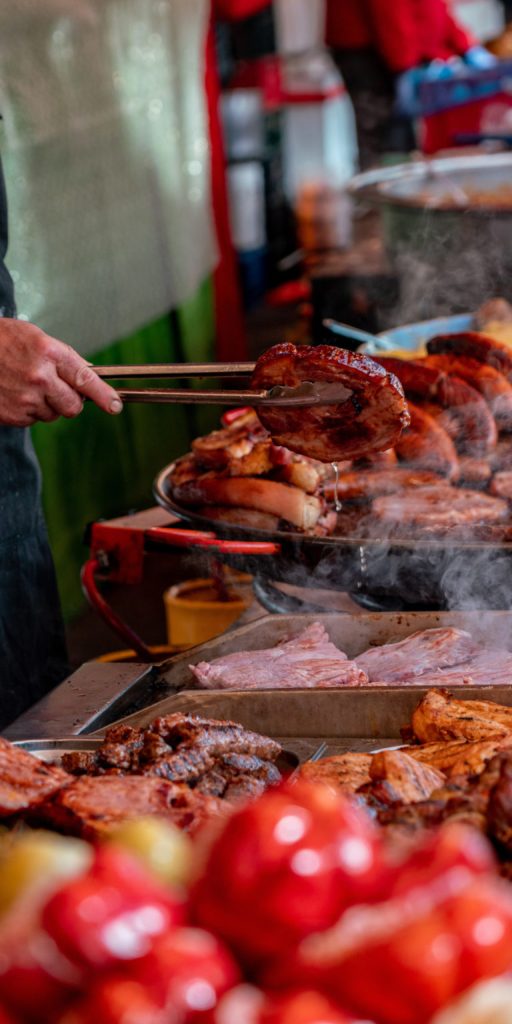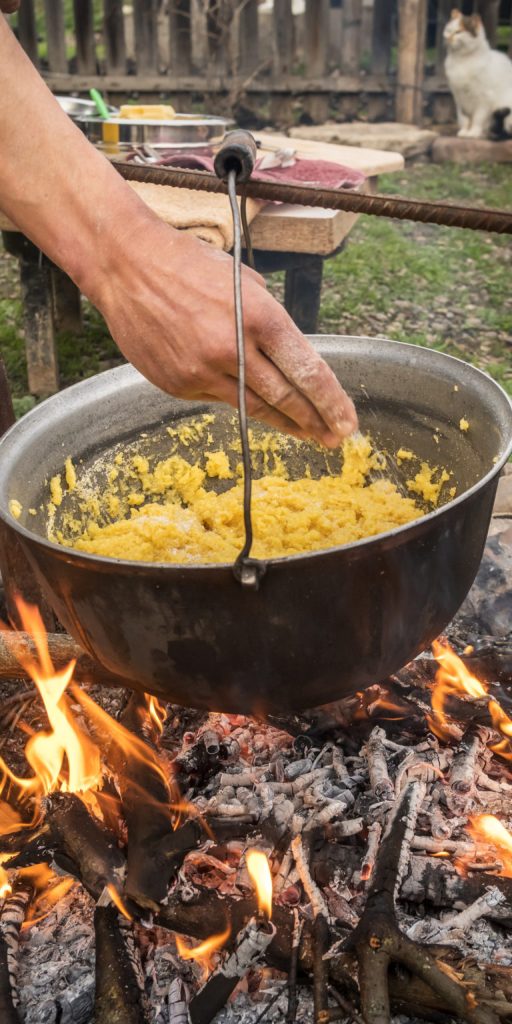Festive meals organised for the winter holidays lead to overeating, which can have consequences for our health.
Romanian holiday meals
We, Romanians, have been and are a people very attentive to traditions of all kinds, and religious ones are respected with some strictness.
The last week of December offers an interesting cocktail of events: Christmas – an important holiday of the Christian world, and New Year’s Eve – a celebration of the passage of humanity into a new calendar year.
We can agree that these two moments are mainly a respite we take to reconnect with family, friends, our circle of close people we haven’t seen for a long time.
But, as no opportunity for socialising comes alone, the Christmas/Revelion meal also comes into the picture, which more often than not tends to become the star of the event.
When I wrote that we are a nation with traditions, I did so with all responsibility and, to confirm this, let us list the basic components of a “banal” Christmas meal.
The pork dishes on the Christmas table are part of the culinary tradition of the Romanian people. Even if traditional recipes differ from one region to another, the Christmas table of Romanians is full of dishes such as: caltaboșii (a kind of pasta), toba, piftia (a cold meat dish), sarmalele (a kind of sausage), boeuf salad, chișca (a kind of meatball), ciorba de perișoare (a kind of meatball soup), cozonacul (a kind of pork stew), sausages, and I will stop here.

Of course, the ingredients are obtained after another purely local tradition, the butchering of pork, because pork is the “star” of the season.
And as a problem never comes alone, if the abundance of dishes is detrimental to our health, making it difficult to maintain a balanced diet, these dishes are also very tasty.
Let’s take for example … sarmalele.
The composition is made with pork and wrapped with pickled cabbage or vine. Chefs recommend that the sarmals should be cooked in a clay pot on the edge of the stove or on the hob over a low heat, so that they can soak in properly, and a smoked bone in the middle of the pot is preferable to add flavour to the final product.
Isn’t it already raining in your mouth?
It is in this ‘culinary’ landscape that we move through the last seven days of every year, piling on the extra pounds and preparing ourselves for what is to come on the first day of January.
For those who worry too much, we should point out that it is more normal to eat during the festive period than to abstain. We are equipped with a stomach built of muscle that can stretch when needed, so our anatomy is put to the service of eating.
So to put your heart at peace and your conscience at rest, here’s what the nutrition books say: “It doesn’t matter what you eat from Christmas to New Year, it’s only a week. What matters is what you eat from New Year’s Eve until the following Christmas, for the remaining 358 days.
“After New Year’s Eve, we all have almost a year to review our eating habits and exercise moderation.
Post-New Year's Eve diet

Once we’ve got through the dangerous period and are slowly, slowly getting back to our habits of the year, we can think about how to get rid of the fat purchases of December.
If after the Christmas and New Year’s binge you cut your portions by say 80%, your body will be completely upset and you’ll probably have problems. In fact, that’s how serious eating disorders are born, from hard diets that effectively torture the body.
Balance is the important word with detox diets too, and the nutritional programme needs to take into account our individual characteristics, including our daily meal calendar.
The winter holidays may also lead to a change in the sleeping schedule, as people are more likely to be lazy in bed, so the usual mealtimes change,
which means that the evening meal is taken very close to bedtime, which is conducive to putting on extra pounds. It’s important to eat as early in the day as possible and refrain from eating high-calorie or carbohydrate foods in the evening.
Ideally, eat dinner before 7pm, and if you feel hungry, you can resort to a snack, such as almonds or soup.
What we eat may have a harder say in how much weight we lose after the festive period, but it’s sport that keeps you toned.
Alongside food and sport, we need to consider food supplements, as they can close the triangle of measures we can take to restore a healthy lifestyle.
When you follow a diet, there is a risk of nutritional imbalances, but also of overstraining the liver as a result of protein metabolisation, with the formation of toxic liver ammonia.
Astenor Energy detoxifies the liver cell through its high arginine aspartate content, with a detoxifying effect and helping to eliminate ammonia resulting from metabolic processes. In addition, it fights the fatigue we feel after a period of excesses of all kinds.
There are solutions to overcoming food impasse, so don’t hold back when you feel the urge to enjoy some delicious food!